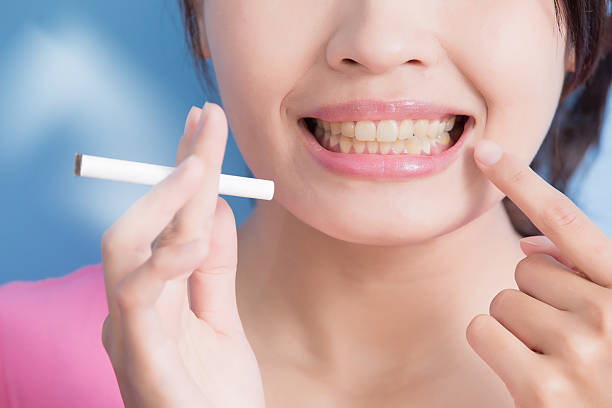Call Us Today
How Smoking and Tobacco Affect Gum Disease: Tips for Smokers to Mitigate Dental Risks

Smoking and tobacco use have long been associated with a wide range of health concerns, and oral health is no exception. One of the most significant impacts of smoking is its contribution to gum disease, also known as periodontal disease. Gum disease is a serious condition that affects the tissues supporting your teeth, leading to inflammation, infection, and potentially tooth loss. In this article, we’ll explore how smoking and tobacco exacerbate gum disease and provide actionable tips for smokers to reduce their dental risks.
The Link Between Smoking and Gum Disease
Smoking weakens your immune system, making it harder for your body to fight infections, including those in your gums. Nicotine reduces blood flow to the gums, depriving them of the oxygen and nutrients they need to stay healthy. Additionally, smoking masks the symptoms of gum disease—like bleeding gums—making it harder to detect the condition early.
Tobacco use also creates an ideal environment for harmful bacteria to thrive. These bacteria form plaque and tartar, which can irritate and infect the gums. Over time, this can lead to gum recession, bone loss, and even tooth loss if left untreated.
Tips for Smokers to Mitigate Dental Risks
-
Prioritize Oral Hygiene: Smokers should brush their teeth twice a day with fluoride toothpaste and floss daily to remove plaque and bacteria. Using an antimicrobial mouthwash can further help combat bacteria buildup.
-
Visit Your Dentist Regularly: Routine dental cleanings and check-ups are critical for smokers. Dentists can catch early signs of gum disease and provide professional cleanings to remove tartar that can’t be addressed with brushing alone.
-
Consider Tobacco Alternatives or Cessation: While quitting smoking is the best way to protect your gums, switching to less harmful alternatives like nicotine patches or seeking cessation support can reduce your risks significantly.
Conclusion
The effects of smoking and tobacco use on gum health are severe but not irreversible if action is taken. By understanding how smoking contributes to gum disease and following a dedicated oral hygiene routine, smokers can mitigate the damage and maintain better oral health. Regular dental visits and reducing or quitting tobacco use are vital steps toward protecting your smile and overall health.
Your gums play a crucial role in supporting your teeth and overall well-being. Take the necessary steps today to safeguard your gum health, even if you’re a smoker. Your future smile will thank you.